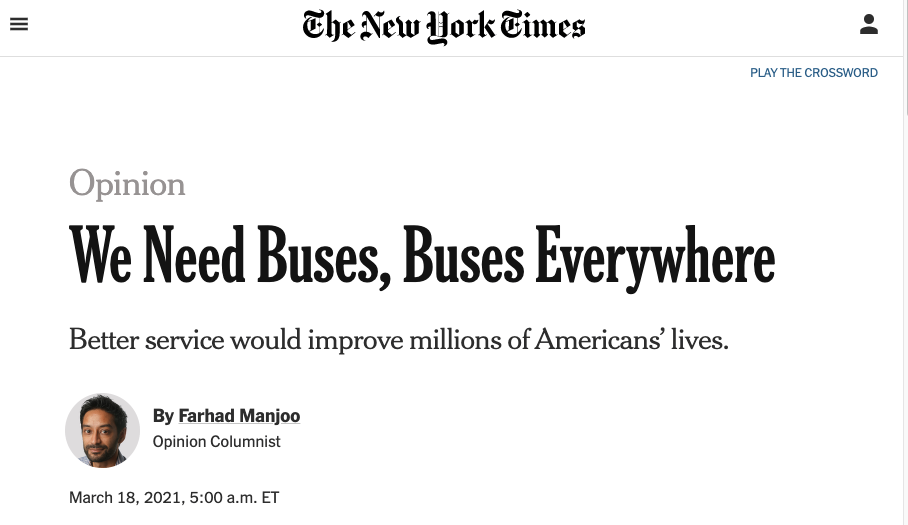Well, this was great to see! A piece by the always-wise NYT columnist Farhad Manjoo.
What I like about the piece is that he runs through the typical confusions and prejudices about the bus. It’s kind of like he’s driving, well, a bus, picking up each reader in the neighborhood of their own assumptions before delivering them all them to his point. Having gathered his readers, he takes them to London, and points out that the most important thing about London’s buses isn’t just that they are iconic, or sustainable, or easy to pay the fare on. The important thing is that there are lots of them.
But the major innovation in London’s buses is less technological than numerical. The magic is one of scale — there are simply enough buses in London to allow for frequent, reliable service to the parts of the city that people want to travel to.
This is the point. Successful transit is mass transit. If it doesn’t scale, it doesn’t matter.

Great column there, and almost so obvious.
Even when bues aren’t coming every five minutes, real-time timetable information is available on so many apps are making bus travel so much easier.
But then I live in Brisbane where we have some great busways where travel is so quick. We could do with some more, but many people (and poliicians) remain wedded t their cars.
It’s a great article, but with one important caveat. For the improvements to bus service to last, it’s not enough to allocate federal money toward improved bus service for the next fiscal year. The money spigot has to keep on flowing, beyond one political cycle.
Practically speaking, that seems very unlikely. Of the two major political parties in the United States, one of them draws the bulk its support from communities where virtually nobody rides the bus (if a bus even exists to ride at all), and gets trounced by 5:1, 8:1, even 10:1 margins in places where the role of transit in people’s lives is non-trivial.
I suppose the flip side is that having one’s daily bus service depend on the outcome of national politics could help get out the vote. You’re a lot more motivated to vote if the wrong party getting in power means your commute increases from 30 minutes to over an hour.
Local transit agencies face choices about the allocation of scarce funds and right of way. This piece may shift the discussion to short headway and short wait service from the expenditure on monuments.